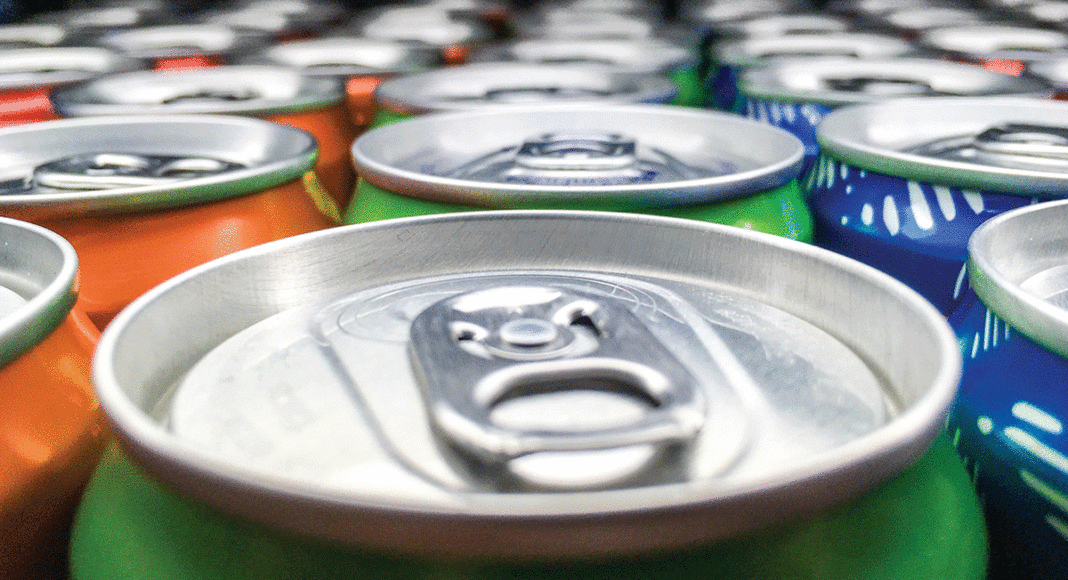As of last Wednesday, it looked like Santa Cruz would be the latest in a series of California cities testing voter appetite for new taxes on soda and other drinks with added sweeteners.
Citing public health concerns like obesity and diabetes, the City Council voted last week to put a 1 cent-per-ounce excise tax for sugary drinks on the November ballot. A city report at the June 26 meeting estimated that the tax would generate up to $1 million per year in unrestricted general revenue, which a new oversight committee would ensure was spent to “promote community health and wellness,” along with unspecified “general revenue” purposes.
“I’m cautiously optimistic,” Vice Mayor Martine Watkins, who championed the measure, said Wednesday, June 27, the day after the vote. “Santa Cruz is a unique city that’s very informed.”
The momentum didn’t last long.
On Thursday evening, Gov. Jerry Brown signed AB 1838, a hastily assembled bill banning all California cities from enacting new taxes on sugary beverages, often referred to as soda taxes, for 12 years. The bill, approved by large majorities in both the state Assembly and state Senate, doesn’t even include the words “soda,” “sugar” or “beverage.” Rather, the bill prohibits local taxes on “groceries.”
At work, Brown said in a brief signing statement, are beverage industry groups that had previously shelled out millions in unsuccessful campaigns to try to defeat similar taxes that ended up passing in San Francisco, Berkeley and Oakland. Now, Brown wrote, the industry has been circulating its own initiative to raise voter approval requirements on all grocery-related taxes from a simple majority to a two-third vote.
“This would be an abomination,” Brown wrote, referring to deficits facing many cities grappling with how to fund city services in an increasingly fragmented economy. Santa Cruz voters just passed a $3 million quarter-cent sales tax in June, but deficits are expected to reappear quickly, due to pension woes.
The Los Angeles Times reported that lawmakers were especially shaken by the threat of the separate measure to raise requirements for all taxes because the beverage industry has already quietly spent $7 million to circulate petitions and conduct polling on the issue.
At the Santa Cruz Chamber of Commerce, which did not publicly take a yes or no position on the proposed November tax measure, CEO Casey Beyer says pro-tax lawmakers were simply out-maneuvered.
“They say politics and policy are messy,” says Beyer, a former political staffer in Sacramento. “It’s like a person that plays cards with somebody who’s got a swift hand.”
City leaders certainly felt caught off guard.
“While we are considering a ballot measure, the industry does an end run around and cuts us off at the knees,” says Santa Cruz City Attorney Anthony Condotti. “We were made aware of it over the weekend, when the legislation was first made public.”
Barring any additional changes, Condotti says Santa Cruz will now likely have to reverse course. The measure approved last week by the council three days after AB 1838 was introduced did include a back-up provision directing staff to return to council in the event of such a change in state policy.
“What I expect is that we will be going back to the City Council before Aug. 10,” Condotti says, though the council is currently on a summer recess.
STICKY SITUATION
The new statewide tax ban will not change the rules in cities that have already enacted similar measures. In addition to Santa Cruz, several other cities were also considering their own beverage taxes this November, including Sacramento and Richmond.
California state Senator Bill Monning (D-Carmel), told GT last week he is optimistic there will be “creative solutions” before the new local tax ban is set to expire in 2031. He has also shepherded SB 1192, a bill to make milk or water the default drink on statewide children’s menus, through several legislative hurdles.
Since then, the California Dental Association and the California Medical Association have jointly announced a 2020 ballot initiative for a statewide soda tax.
The stakes of the political showdown from a public health perspective, Monning says, are clear.
“They may have won this battle, but we need to win the war,” Monning says, “or else we’re looking at half the population being diabetic or pre-diabetic.”
For Watkins, the most important outcome of the proposed tax measure would have been the potential for significant new public health funding. A City Council report ahead of the tax vote last week tied sugary drinks to elevated risk of Type 2 Diabetes, cardiovascular disease and obesity, particularly for children from low-income, Latino or African-American communities.
Monning is also troubled by the more systemic issues in play, like the fact that it took less than a week for a powerful industry to completely kill profit-threatening legislation statewide. It’s not as though Big Soda is the first industry to try to mold regulations to its liking, he says, citing examples like Amazon’s 2011 efforts to evade online state sales tax.
“I think about Hiram Johnson, the progressive governor,” Monning says. “I don’t think, when he introduced the ballot initiative process, that he ever would have imagined an industry being able to spend $7 million to gather signatures for a measure on the ballot and use it to get the kind of bill that was passed in Sacramento. It’s a reprehensible side effect.”
Watkins compared the situation to health providers being held “hostage” by industry.
Still, other powerful political interests, including several major labor unions such as the SEIU, backed the deal.
Looking ahead, Beyer says the Chamber of Commerce will wait to see if the council returns to soda tax alternatives or other potential revenue measures in the coming months. “This city and the county have a financial issue,” he says. “They’re running into potential deficits.”
Additional reporting by Jacob Pierce.













